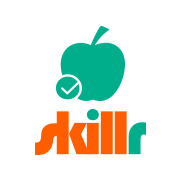Description

Eduvacancy

Study Island
Comprehensive Overview: Eduvacancy vs Study Island
As of my last update in October 2023, there isn't a widely recognized product or service explicitly named "Eduvacancy." However, I can describe Study Island, a well-known educational tool, and provide insights based on what typical products with similar naming or functionality might imply. If "Eduvacancy" is a newer or niche product that developed after 2023, the following analysis for Study Island can serve as a contextual comparison if you have more information about Eduvacancy.
Study Island
a) Primary Functions and Target Markets
Primary Functions:
- Standards-Based Assessment: Study Island provides practice exercises, instructional materials, and assessments that are aligned with state and national educational standards.
- Progress Tracking and Reporting: Offers tools for educators to track and report student progress in real-time, facilitating the identification of areas requiring additional support.
- Engagement Tools: Includes interactive lessons and gamified elements to keep students engaged and motivated in the learning process.
Target Markets:
- K-12 Education: Primarily targets the K-12 educational market, including teachers, schools, and districts.
- Students and Parents: Provides resources for students to enhance their learning at home, with parental oversight features.
b) Market Share and User Base
Market Share:
- Study Island is considered a significant player in the digital education landscape, particularly in the U.S. market. However, the precise market share is variable and depends on continuous market trends, competition, and adoption rates in different districts.
User Base:
- It has a widespread user base that includes millions of students across numerous schools and districts in the United States. Its extensive use is attributable to its alignment with educational standards and effective support for standardized test preparation.
c) Key Differentiating Factors
-
Standards Alignment: One of Study Island’s key strengths is its precise alignment with state and national education standards, which ensures educators can meet regional educational requirements effectively.
-
Customized Learning Paths: Offers personalized learning experiences that adjust to student performance, making it a beneficial tool for differentiation in the classroom.
-
Approach to Engagement: Study Island incorporates gamification and rewards to motivate students, which is a critical differentiator in maintaining student interest compared to traditional educational tools.
Since information on "Eduvacancy" is not available up to October 2023, a direct comparison on these specific points is not feasible. Generally, potential products with a name like "Eduvacancy" might suggest a focus on educational job marketplaces, bridging gaps between job seekers and educational institutions. If so, its functions and market targets would differ significantly from Study Island which focuses on student assessments and learning enhancement tools. If you provide more details or context about Eduvacancy, I could offer further tailored insights.
Contact Info

Year founded :
Not Available
+91 98203 77985
Not Available
India
http://www.linkedin.com/company/eduvacancy

Year founded :
2000
Not Available
Not Available
Not Available
http://www.linkedin.com/company/study-island
Feature Similarity Breakdown: Eduvacancy, Study Island
Eduvacancy and Study Island are both educational platforms, but they serve different primary purposes and target audiences, which influences their feature sets. Here's a breakdown of their similarities and differences in terms of core features, user interfaces, and unique aspects:
a) Core Features in Common
-
Educational Content and Resources:
- Both platforms offer educational materials aimed at improving learning outcomes. Study Island focuses specifically on providing practice and instruction resources to reinforce academic standards, whereas Eduvacancy provides job listings and opportunities in the education sector.
-
Assessment and Analytics:
- Study Island offers assessment tools that align with standards for tracking and improving student performance. Eduvacancy might not focus directly on student assessments, but may include features that allow for tracking job application submissions and matches.
-
Customization and Personalization:
- Both platforms allow some level of customization, though differently applied. Study Island allows educators to personalize student learning paths, while Eduvacancy may allow users to customize their job search preferences or notifications.
-
User Management:
- Both platforms likely include features for managing users, be it students and teachers on Study Island or job seekers and employers on Eduvacancy.
b) User Interface Comparison
- Study Island:
- Designed for educational use, the interface is typically more focused on ease of navigation for students and teachers. It likely includes dashboards that succinctly present educational data, progress tracking, and resource access.
- Eduvacancy:
- Focused on recruitment and job search, the interface would prioritize job listings, application tracking, and employer interaction tools. It's designed more like a job portal, optimizing for search and filtering features.
Both interfaces would be functional but cater specifically to their respective user's needs (educators and learners vs. job seekers and recruiters).
c) Unique Features
-
Eduvacancy:
- Job Matching Algorithms: Tools to match candidates with potential job opportunities based on their profile, preferences, and qualifications.
- Employer Branding: Options for educational institutions to present their brand to attract candidates.
- Career Resources: Guidance and tools for building resumes, preparing for interviews, and career development specifically in the educational field.
-
Study Island:
- Standards Alignment: Comprehensive alignment to state and national standards, offering assessments and content tailored to these benchmarks.
- Gamification Features: Interactive elements to engage students, such as rewards and badges for completing milestones.
- Real-time Feedback: Instant feedback for students on assessments and practice exercises to aid learning.
In summary, while both platforms aim to enhance the educational landscape, Eduvacancy is more focused on employment opportunities within education, while Study Island emphasizes academic proficiency and student outcomes through interactive and standards-aligned learning tools.
Features

Not Available

Not Available
Best Fit Use Cases: Eduvacancy, Study Island
To describe the best fit use cases for Eduvacancy and Study Island, let's delve into the specifics of these platforms:
Eduvacancy
a) Best Fit Use Cases for Eduvacancy:
-
Educational Institutions and Recruitment Firms: Eduvacancy is ideal for educational institutions looking to streamline their recruitment processes for both academic and non-academic positions. It serves as a specialized job portal that can cater to schools, colleges, universities, and other educational entities seeking qualified candidates.
-
Large Educational Networks: For organizations with multiple campuses or a large network of educational facilities, Eduvacancy provides a centralized platform to manage recruitment efficiently.
-
Corporate Training Providers: Companies offering corporate training programs or professional development courses can use Eduvacancy to find educators, trainers, and administrative staff aligned with their organizational goals.
-
Startups Focused on EdTech: Startups in the education technology sector could leverage Eduvacancy to locate talent with specific expertise in digital learning tools and educational technology.
Study Island
b) Preferred Scenarios for Study Island:
-
Elementary and Secondary Schools: Study Island is particularly beneficial for K-12 schools looking to improve student performance and engagement through standards-based practice and learning programs.
-
Educational Assessment Programs: Schools or districts that need tools for educational assessment and accountability can use Study Island to help prepare students for state and national standardized tests.
-
Specialized Tutoring Centers: Centers focusing on improving academic outcomes for students can harness Study Island's practice and assessment tools to support individualized learning plans.
-
After-School Programs: Organizations offering after-school activities with an educational focus can utilize Study Island's resources to complement their learning objectives.
d) Catering to Different Industry Verticals or Company Sizes:
-
Eduvacancy: Generally suits medium to large-scale educational institutions and networks due to its focus on recruitment within the education sector. It can also be valuable for recruitment agencies and larger corporate entities involved in education-related fields.
-
Study Island: Primarily caters to elementary and secondary education sectors, making it an excellent resource for individual schools or school districts of varying sizes. It addresses the needs of small tutoring centers to larger educational networks, with scalability that allows it to fit various budget sizes and institutional goals.
In summary, Eduvacancy is best suited for organizations focused on hiring within the educational sector, while Study Island is favored in scenarios that require standardized test preparation and educational assessments within K-12 environments. Both platforms cater to different industry verticals through their specialized services and scalability to accommodate various organizational sizes.
Pricing

Pricing Not Available

Pricing Not Available
Metrics History
Metrics History
Comparing teamSize across companies
Conclusion & Final Verdict: Eduvacancy vs Study Island
To provide a comprehensive conclusion and final verdict for Eduvacancy and Study Island, let's analyze each platform based on the factors provided:
a) Best Overall Value
In determining the best overall value between Eduvacancy and Study Island, consider factors like pricing, features, usability, and effectiveness in achieving educational goals.
-
Eduvacancy: Often positions itself as a platform designed to streamline the hiring process for educational institutions and professionals. It might offer features such as job listings, applications management, and potentially career resources for educators. It's best suited for schools and educational professionals focused on recruitment and career opportunities within the education sector.
-
Study Island: This platform is commonly used as an educational tool, primarily focusing on assessment and practice aligned with educational standards. It is more geared toward providing students with exercises and assessments that reinforce learning in various subjects. It's widely used in K-12 education for its standards-based learning and assessment tools.
Verdict: If the aim is to enhance and track student learning outcomes, Study Island offers better overall value due to its emphasis on curriculum support and student assessment. However, for institutions and educators interested in optimizing educational hiring processes, Eduvacancy would be more valuable.
b) Pros and Cons
Eduvacancy
-
Pros:
- Specialized focus on educational recruitment.
- Potentially streamlines hiring processes for educational institutions.
- May offer resources for career development.
-
Cons:
- Limited to recruitment without direct academic instructional support.
- Not applicable as a learning tool for students or curricula support.
Study Island
- Pros:
- Strong emphasis on standards-based learning and assessment.
- Offers comprehensive content catering to K-12 across various subjects.
- Useful analytics and reporting features for tracking student progress.
- Cons:
- May require additional resources or tools for comprehensive learning management.
- Subscription can be an additional expense for schools with tight budgets.
c) Recommendations for Users
Users should consider their primary objectives when choosing between Eduvacancy and Study Island.
-
If the objective is to enhance teaching and learning through practice and assessment, Study Island should be the preferred choice. It's especially useful for schools seeking an integrated solution to meet standards and improve student outcomes.
-
For institutions looking to optimize their recruitment processes and focus on educational career opportunities, Eduvacancy would be more suitable.
Additionally, users should evaluate their budget, specific needs, and potentially pilot test each platform where possible to see which aligns best with their institutional goals and user requirements.
Add to compare
Add similar companies



